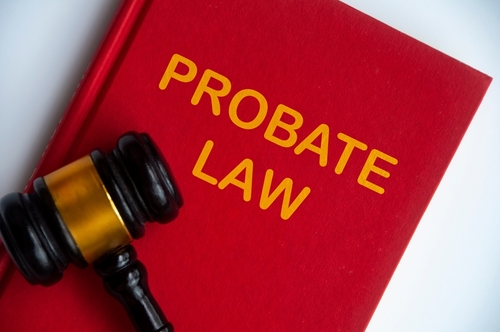A savings bond is a “debt security” issued by the U.S. Department of the Treasury to help pay for the U.S. government’s borrowing needs. When you buy a savings bond, you loan the U.S. government money, which the government repays with interest after a fixed period of time.
There are currently two types of savings bonds available: Series EE U.S. Savings Bonds are sold at face value. At redemption, they are worth their full value with interest. Series I U.S. Savings Bonds are inflation-indexed, which means they offer a fixed rate of interest that is adjusted for inflation. These are often used as a long-term investment.
Savings bonds are a safe investment; their value does not fluctuate, which makes them attractive during periods of economic volatility. They can also be purchased in increments between $25 and $10,000. However, they’re not redeemable for at least five years (unless you’re willing to forfeit the last three months’ interest as a penalty). This means that you may not have easy access to the money invested in your savings bond.
There are several estate planning issues you should keep in mind if you have savings bonds or plan to purchase them.
Will Saving Bonds be Included in Probate?
Probate is the court-supervised process for proving the validity of a will and ensuring that the deceased person’s money and property are transferred to the correct beneficiaries. Probate also ensures that debts and taxes owed by the estate are paid. Because probate can be time-consuming, expensive, and public, people often look for ways to avoid the process. Whether a savings bond will have to go through the probate depends upon how it is owned (titled).
- Single owner. An individual can easily purchase a savings bond titled in their own name. If you choose to do this, the savings bond will become part of your estate and will have to go through the probate process, even if you name someone in your will to inherit it. If you do not have a will, the savings bond will be passed on to a beneficiary chosen by your state’s intestacy statute, which is a state’s default estate plan rule.
- Name a co-owner. Two or more people can hold title to a savings bond as co-owners. Each of the co-owners can cash the bond, even without consulting the other owners. After the death of one owner, savings bonds titled in this way pass directly to the surviving co-owner(s) without probate. When the last owner dies, the savings bonds are part of that person’s estate, which must be probated in the absence of an estate plan.
- Name a beneficiary. Another option is to name a beneficiary with the U.S. Treasury Department using the TreasuryDirect website. In this case, the savings bond will not go through probate, because the beneficiary you have named will automatically become the owner upon your death. The beneficiary must also set up a TreasuryDirect account, but once it is established, will only need to deal with a straightforward process to transfer ownership of the bond when you pass away.
- Create a trust. If you want to continue to benefit from the savings bond individually, without naming a beneficiary and you also want to avoid probate, you can create a trust and transfer ownership of the savings bond to the trust. Beneficiaries you name in the trust can receive the benefit of the savings bond, and you can name someone you trust as the trustee to manage the savings bonds. Certain types of trusts can even protect the savings bonds from being reached by your beneficiaries’ creditors.
What If I Have Found Savings Bonds That Belonged to Someone Who Has Died?
Because savings bonds often take many years to mature, they may be stashed in a cabinet and forgotten. The Department of the Treasury explains the steps to take if the owner has died.
- Electronic savings bonds. If the savings bonds are electronic, the person who died likely has a TreasuryDirect account. If so, you should contact the Treasury Department’s Bureau of Fiscal Service, which will put a hold on the account and provide instructions for your specific situation.
- Paper savings bonds. For paper savings bonds, you must first determine who owns the bond. A savings bond typically prints the names of the owner or owners on the bond. If all owners named on the bond have passed away, the bond is part of the estate of the person who died last. In order to properly handle the savings bond, you must establish that you are entitled to the bond or that you have the authority to act on behalf of the beneficiary.
If the savings bond is part of the owner’s estate, the Treasury Department offers these procedures:
- If the bonds are valued at $100,000 or less and the estate was not formally administered through a court process, the beneficiary must mail in the bond, an FS Form 5336 that has been signed and notarized, and proof of the owner’s death to the Bureau of Public Debt.
- If the value of the bonds exceeds $100,000 or the estate is being administered by a court, the representative of the estate can mail in evidence showing his or her appointment as personal representative, a certified copy of the owner’s death certificate, and FS Form 1455, along with the bond.
- In a situation in which the bond is found long after the owner has died and the owner’s estate has already been administered by a court, the beneficiary must send the bond, proof of death, a notarized affidavit explaining that the bonds belong to named individuals (for small estates) or a final accounting from the estate (for any other estate) to the Bureau of Public Debt. If there is more than one person who may inherit the bond, an FS Form 5394 must be mailed in by the heirs, who must all agree with the distribution of the bonds.
If a survivor is named on the savings bond, it does not become part of the deceased person’s estate. Rather, the savings bond belongs to the survivor who can choose to do nothing, redeem the bond, or have it reissued. If the survivor does nothing, the bond will continue to earn interest until the bond matures. The survivor could also cash a paper bond by going to a financial institution that pays savings bonds and provides any documentation required by that institution. Alternatively, the survivor can have the bond reissued in his or her name alone. Series EE and I savings bonds are only reissued in electronic form, but Series HH bonds are still reissued in paper form.
Let Us Help You
If you own savings bonds or they represent part of your financial plan, we can help determine the best ways to title them in order to achieve your estate planning goals. We can also help you if you have found savings bonds that were owned by a parent or loved one. Please contact us today to set up an appointment so we can assist you with this or any other estate planning concerns. We are more than happy to meet with you virtually or by phone if you prefer.
You can schedule a call with us or reach us directly at 855.528.9637 to learn more about how best to plan today to protect those most important to you.








